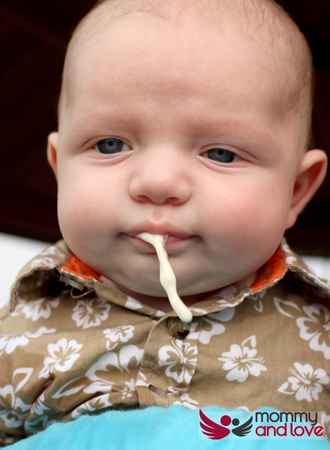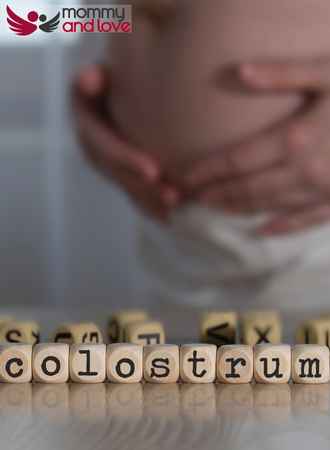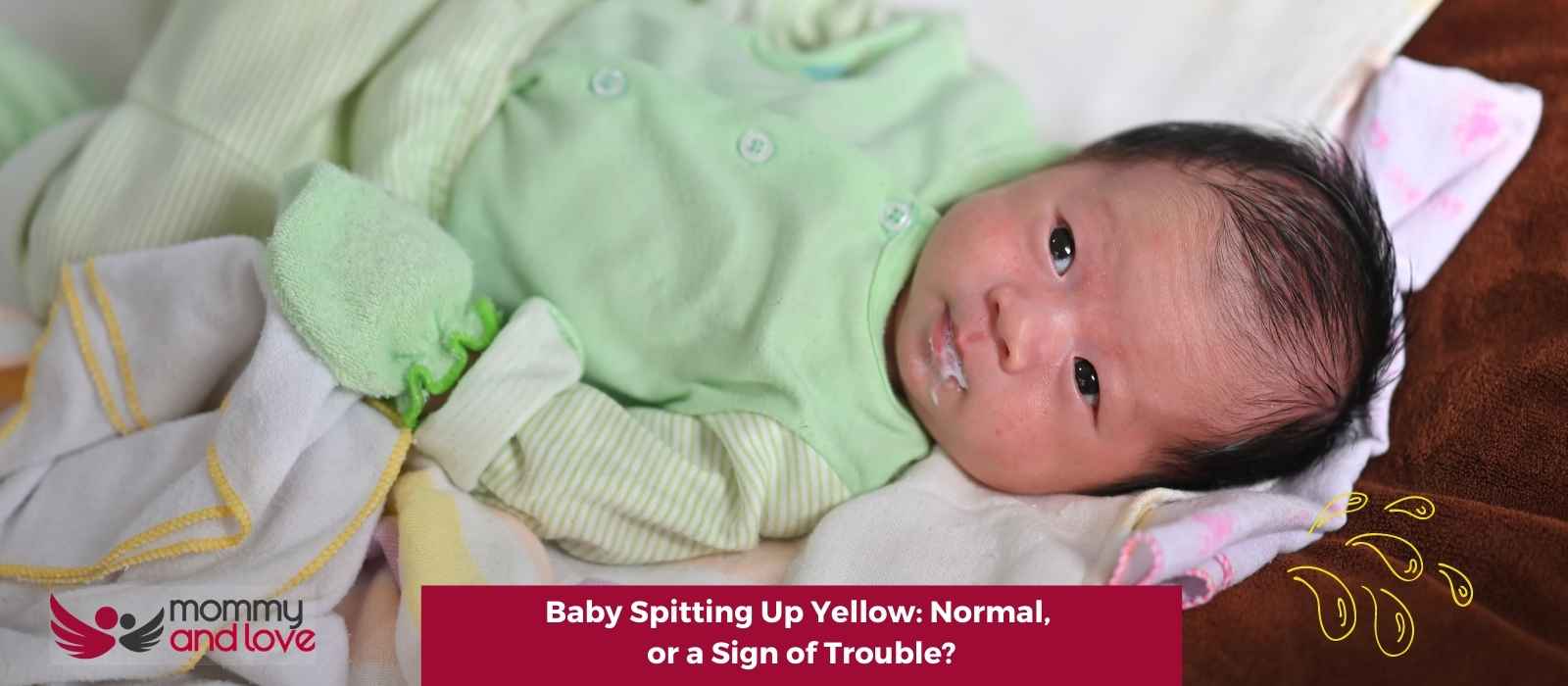Babies spit up and vomit all the time. Some do it more often than others but it’s just one of those things that, as parents, we have to deal with.
Most of us become familiar with what’s normal for our babies in terms of spitting up. So, when that spit up looks different, we often become concerned.
If baby spit up is yellow then this could be a sign of an underlying illness so it’s worth checking for other signs. However, it could just be colostrum or mucus. But in this article, I’ll discuss some of the things you should look out for if your baby is spitting up yellow.
Key Takeaways
Understanding the difference between spit up and vomit
Normal reasons for yellow spit up
Reasons for yellow spit up that may be more serious
When to contact a doctor
Is There A Difference Between Spit Up And Vomit?

Pretty much all babies spit up. This is small amounts of liquid that can sometimes be mistaken for other things like drool. Spit up is never projectile whereas vomiting can be and there’s usually a lot less spit up than there would be if your baby is puking.
Usually, babies spit up after a feed and this might happen alongside a small hiccup or burp, just to help relieve the pressure in baby’s stomach. There’s normally so little that you only need to wipe it away. If your baby is vomiting then it might look as though they’ve chucked up their entire stomach contents.
Most babies that vomit are doing so because of some kind of illness so you’ll need to check for other signs. Even something as simple as the common cold can cause vomiting in babies.
Reasons That Babies Spit Up Yellow
Seeing yellow liquid coming out of your precious little one’s mouth is understandably concerning. However, more often than not, it’s nothing serious. Here are some of the most common reasons that you’ll find your baby spitting up yellow.
You Haven’t Burped Your Baby
Babies need to burp after they have been fed. Air from the bottle of formula fed infants can get into their mouths very easily. Breastfed babies might not swallow as much air but it’s still important to burp them.
If they don’t burp then all that milk will sit in their stomach and if they don’t poop, that milk begins to ferment. So, if the spit up has a sort of gone-off milk scent, then it probably means you need to burp your baby more after feeding, remember to sit baby upright and help them release air.
It Might Be Colostrum

This applies to breastfed babies because colostrum can have a bright yellow color and this is what comes through before your main breast milk. Colostrum contains essential nutrients for your baby so if your newborn is spitting up yellow, this could be the reason.
However, do keep in mind that it’s also possible for colostrum to be creamy colored, white, or even clear. So, make sure you know what’s normal for you and this will help you to better assess your baby’s spit up.
Being Sick
If your baby spits up a yellow mucous then this is likely because they are sick. When babies vomit, it can contain a lot of mucous because they spend a lot of time lying down. When they lie down, mucous can trickle down into their stomach and upset it. This may cause them to be sick.
However, yellow mucous could also be a sign of an infection such as a sinus infection. So if you do notice this, then it is a wise idea to have your baby checked by their pediatrician or baby’s health care provider just to be sure.
Acid Reflux

Acid reflux can affect people at any age, including babies. In fact, it’s a very common occurrence in young children under the age of 12 months. When it happens, your baby will throw up their entire stomach contents including any bile, which has that bright yellow color.
While this is a normal condition that shouldn’t be worried about, it is worth checking with your doctor just to make sure that is what’s causing the problem.
When Yellow Spit Up Is Cause For Concern
Most of the time, your baby spitting up yellow will be nothing to worry about. However, there may be instances when you need to seek medical attention quickly.
Whether they are projectile vomiting or spitting up, if it contains bright yellow bile, this could be a sign that there is something more serious going on.
Most of the time, this is usually down to a digestive virus which will typically clear up on its own. However, if left untreated and your baby continues to vomit, there is a risk that they will become dehydrated.
If you are concerned about this, then it’s important to keep an eye out for further signs of dehydration which may include crying without tears, fewer than 6 wet diapers in 24 hours, sunken eyes, cracked lips or a dry mouth. If your baby does display any of these signs, it should be treated as medical emergency. Your baby may need IV fluids.
Babies that are not well will usually be a lot more fussy than usual. If your little one seems out of sorts and this is accompanied by yellow spit then it’s always a good idea to seek medical advice.
Furthermore, you know your baby better than anyone so if your gut is telling you that something is wrong, there’s no shame in asking for help. That’s what your pediatrician is there for.
Conclusion
New parents are bombarded with information on baby health and what to expect but there isn’t a lot of talk about what to do if your child throws up yellow spit. This can be seriously alarming and most moms aren’t sure what to do.
The good news is that many babies experience this and it’s usually nothing to worry about. Where things like a lack of burping are causing the yellow spit up, you can put things right by ensuring a proper burping after feeding; this should prevent spitting up anything untoward.
Sometimes, it may be that your baby is spitting up colostrum which can be yellow, among other colors.
It’s also not uncommon for your baby to suffer with acid reflux in which case, they may spit up most of what was in their stomach.
Of course, there are some illnesses that are more serious that may cause yellow spit up. This would normally be accompanied by other symptoms so keep and eye out for these. If you are worried or the spit up is bright yellow, contact your doctor who will be able to provide you with the most appropriate advice and treatments.




